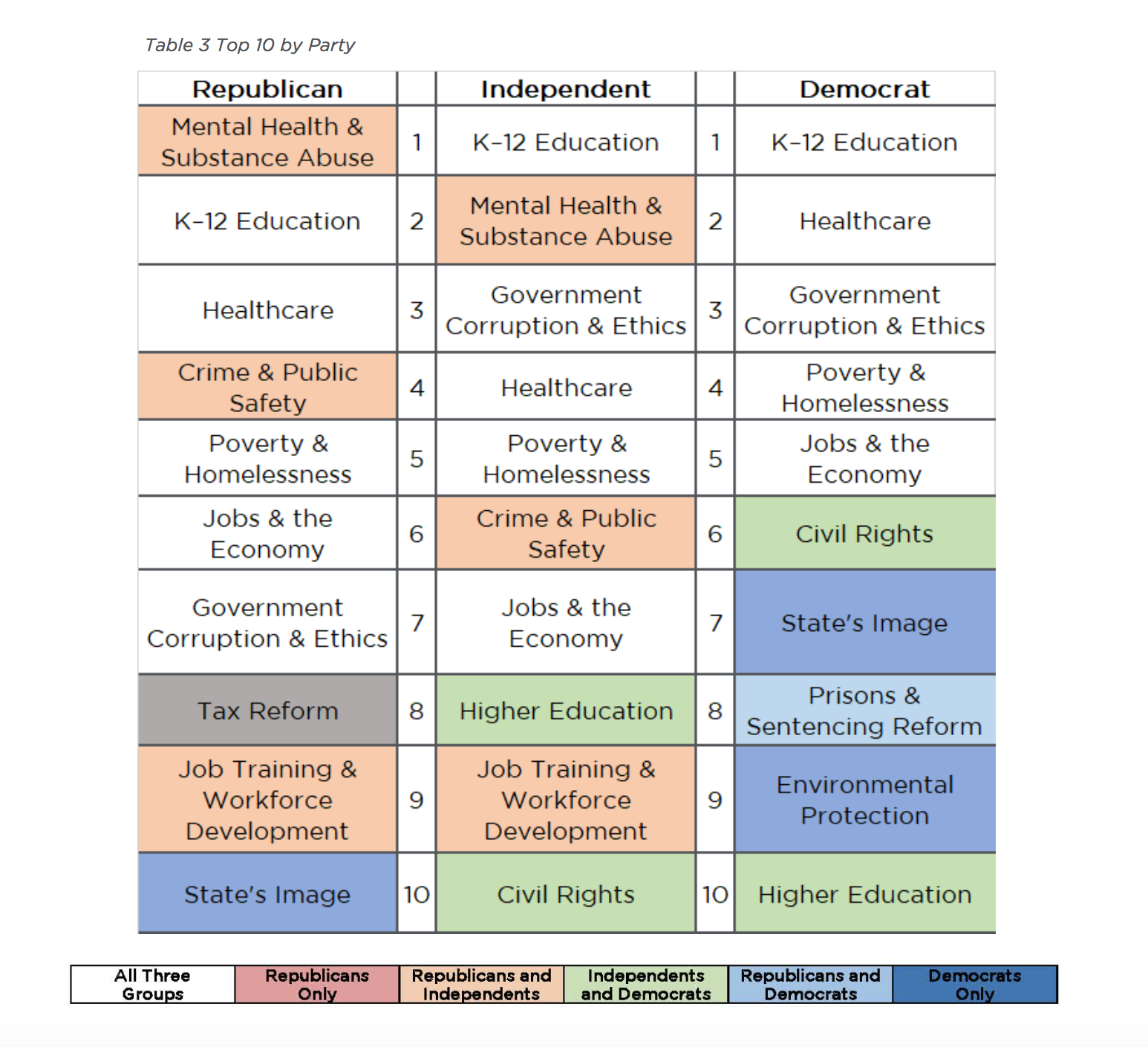A new report shows there is broad agreement among Alabama voters about what issues are important to them as the state nears a statewide election in November.
The report, published by the Public Affairs Research Council of Alabama, is the result of a survey the group conducted, polling Alabama voters to determine their thoughts about the general direction of the state and issues that are concerning to them.
Based on the responses to the survey, PARCA identified and ranked voters’ top 10 critical issues.
First among them: Pre-K-12 education, health care and government ethics and corruption.
Seventy percent of Alabama voters indicated that they are “very concerned” about the state and direction of the state’s public education system. Education was ranked first among voters’ concerns. And the concern was spread across the political spectrum with 60 percent of Republicans, 66 percent of independents and 80 percent of Democrats listing education as a concern.
PARCA then asked a follow-up question to determine what exactly voters’ were concerned about when it comes to education.
“When asked to identify their top priority regarding K–12 education, a plurality (44 percent) selected funding,” the report reads. “Nearly a quarter selected teacher preparedness as their top priority with lesser percentages selecting student achievement and class size. Pluralities of every partisan stripe prioritize funding.”
Just behind education was healthcare, with 65 percent of respondents listing health care as something they are “very concerned” about.
“Majorities of every demographic and political party say they are very concerned about healthcare,” the report reads. “Those with less than full-time employment and the self- employed are even more likely to say they are very concerned.”
More than half of those who responded to the survey said the cost of insurance was their top priority, and about 20 percent said expanding Medicaid, improving rural access to care and prescription drug costs were their top concerns.
Across the political spectrum, most respondents said the cost of insurance was their priority.

Over the course of a year in 2016 and 2017, the top three elected officials in the state of Alabama were removed after corruption or ethics scandals. Former Alabama House Speaker Mike Hubbard was convicted of ethics violations, former Chief Justice Roy Moore was effectively removed for violating judicial ethics and former Gov. Robert Bentley resigned after sex scandal with a top aide.
At least 65 percent of respondents said they are “very concerned” about government corruption and ethics.
“While majorities of nearly every demographic or political group are concerned, there are some differences among partisan identifiers: A majority of Republicans are very concerned, while two-thirds of independents and over 80 percent of Democrats are very concerned,” the report reads.
While there is an expectation of polarization among the political parties, PARCA’s survey indicates there is actually a high degree of agreement among political parties about what the priorities are.
“When we look at the Top 10 within each group of partisan identifiers, we see a good deal of overlap,” according to the report. “All include five common issues in their top seven: K–12 Education, Healthcare, Government Corruption and Ethics, Poverty and Homelessness, and Jobs and the Economy. Another six issues are shared by two partisan groups.”
Only three issues appeared among the priorities of those of a single political party: tax reform, prison and sentencing reform and environmental protection.
There was also a lot of agreement among different demographics including race, age, educational attainment, wealth and age groups.
“While there are some interesting differences across groups, many of the top issues overall are also represented in the subgroups,” the report reads.
Overall, the report shows that there is not polarization among traditional political, ideological, race or generational lines
“Policymakers have an opportunity to respond to immediate, often highly personal issues that concern voters,” the report reads. “This research suggests that elected officials and candidates have an opportunity to show leadership and to build broad coalitions to address Alabama’s most pressing challenges.”




















































